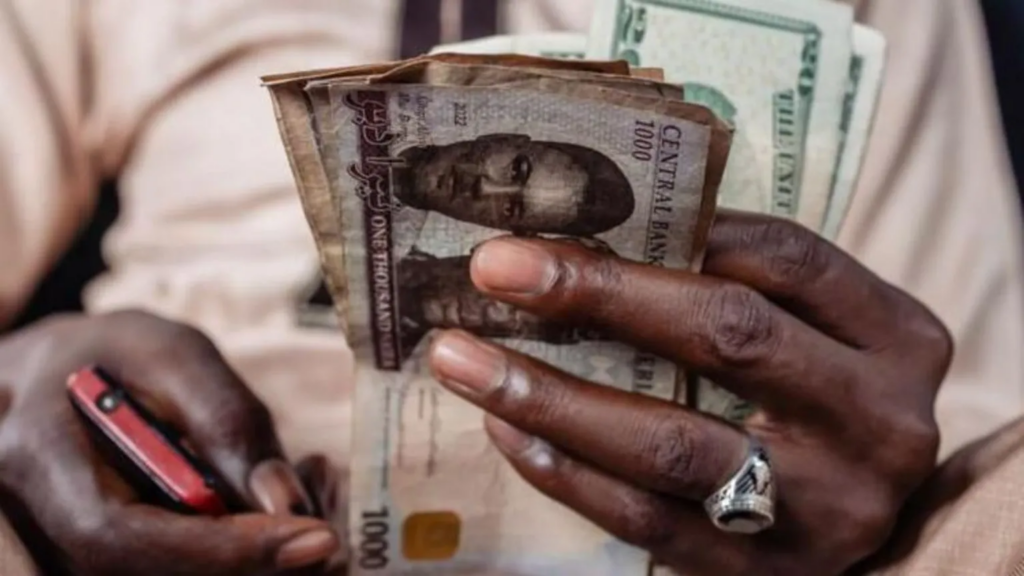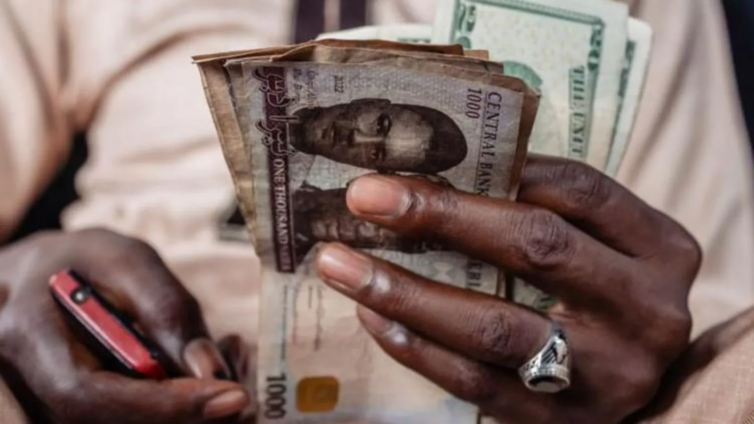Many Nigerians have condemned the introduction of a new levy on electronic banking transactions, with some saying it will push them back to using cash.
The Central Bank of Nigeria (CBN) has told financial institutions the 0.5% levy intended to raise money to enhance cybersecurity will take effect in two weeks' time.
Nigeria is experiencing its worst economic crisis in a generation and many people say the levy will cause further hardship as they struggle to afford basic items.
Dr Abdulrazaq Fagge, who teaches economics at Yusuf Maitama University, tells the BBC this is a wrong move by the government that will have negative effects on Nigeria’s struggling economy.
“It is not only bad timing but a wrong move altogether as no government should put [an] additional burden on its citizens at a time they are struggling to get by,” he says.
He said it would also hurt small businesses.
"If you transfer a million naira, five thousand naira gets deducted as cybersecurity levy, which is not fair to ordinary persons."
The lecturer says the money should be paid by banks as they make huge profits.
Bread seller Abubakar Sheka says he has already made up his mind to avoid electronic banking transactions by the time the levy starts on 20 May.
“There is no way I will agree to be giving 0.5 per cent on my transfers when I earn very little, many people don't buy bread now and business is fragile.

“Why will this government further make us cry with this despite what we are already going through with high cost of food and fuel?”
The Nigeria Labour Congress, which represents the country’s workers, has released a statement rejecting the levy, while the Socio-Economic Rights and Accountability Project (Serap) lobby group has threatened to sue the government.
The government has not yet commented on the reaction.
Public affairs analyst Habu Sani believes the government has done a huge disservice to its cashless economy drive as more people will be dealing in cash now.
“Government pushed people to be using electronic transfers to reduce printing of cash which takes a toll on government finances and now this will further make people go back to cash to avoid paying the levy.
“I foresee a cash shortage soon if government doesn't reverse its decision.”
There was a major shortage of cash for much of 2023 after the CBN introduced currency reforms intended to cut fraud in last year's election. This pushed many people to start using mobile money.
The shortages only eased at the end of last year.
Only about eight percent of people aged between 16 and 64 have used mobile payment services in 2024. This was an decrease from the previous year.
Digital penetration is low in Nigeria due to the lack of mobile signal in many rural areas, while many people cannot afford smartphones.
Latest Stories
-
Mothers celebrate arrival of Christmas Day babies at Ridge Hospital
2 hours -
Alleged National Security operative remanded over GH₵1m recruitment scam
2 hours -
Sametro Group of Companies donates to widows in Tarkwa Nsuaem Municipality to mark Christmas
2 hours -
Morocco’s Family Code revision proposals unveiled in Rabat
4 hours -
Saglemi fire: No documents lost, redevelopment project unaffected – Oppong Nkrumah
4 hours -
WAEC uncertain about meeting Dec. 29 deadline for WASSCE results
4 hours -
‘She Leads Project’ calls for more female representation in politics to address women’s issues
5 hours -
DJ Promise crowned Best Radio DJ at Dangme Music Awards 2024
5 hours -
Re-collation: Court sets Dec. 27 to hear NDC’s suit against EC
5 hours -
Let’s remain positive, optimistic, and with calmness, rebrand our party – Afenyo-Markin
5 hours -
L’aîné HR celebrates 30 years of excellence in HR management in Ghana
6 hours -
Corporate Wellness: Elegant Homes emphasizes impact of Annual Health and Family Fun Day
6 hours -
BoG issues bancassurance directives to stakeholders in financial sector; warns of sanctions
7 hours -
African Paralympic Committee President sends festive greetings to fraternity
7 hours -
Ghana-Russia Centre holds its first corporate social responsibility event in Ghana
7 hours

